- Home
- Robin Jones Gunn
Sisterchicks Go Brit! Page 3
Sisterchicks Go Brit! Read online
Page 3
We hung close together as we exited baggage claim. I had the transportation papers in hand and announced that our next job was to find the train that would take us to Milton Keynes. From there we would take a bus to Olney. If we needed help, I felt comforted knowing we could ask any of the uniformed airport assistants. For such an enormous airport, Heathrow was fairly easy to navigate.
Just as we were moving out into the general meeting area of the terminal, we heard someone call Opal’s name.
A tall man who appeared to be about Opal’s age waved at us. He wore a heavy, camelhair coat buttoned up to his neck. “Opal! Over here, Opal!”
She stopped short, drew in a wobbly gasp, and in a matter-of-fact tone said, “Oh, me. It’s Virgil.”
We made our way around to where the beaming man looked down on stunned little Opal with admiration. His large coat surrounded him like fur on a yak.
“Rose told me you were coming.” He continued to beam in an older-gentleman sort of way.
Opal’s face glowed right back, even though she seemed to be fighting to remain subdued.
Before Kellie or I could introduce ourselves, we heard a muffled yelp. The wet nose of a white, long-whiskered dog poked out from between the second and third buttons on Virgil’s coat.
“All right, then, Boswald. You remember the rules. Stay tight until we get back to the car. You can see the pretty ladies soon enough.” He looked at Kellie and me and, offering a polite nod, said, “I’m Virgil, by the way. This is Boswald. You’ll be able to meet him proper soon enough.”
“I’m Kellie. This is Liz.”
“Elizabeth.” He lowered his head in a playful bow. “Queen Elizabeth. I’m honored.”
“Virgil,” Opal said firmly, “why have you come?”
“Why to see the queen, of course,” he said with a crooked grin at me. “Your majesty.” He bowed his head to me once again.
“I’m afraid you have wasted a trip coming all the way here to collect me,” Opal said, still standing her ground. “We have made our arrangements. We are going to take the train.”
“So I was told. However, I have come anyway, haven’t I? I suppose I could blame the trip on Boswald.” Virgil leaned down and spoke into his coat. “You wanted to come see the aeroplanes take off, didn’t you, Boswald?”
Kellie and I exchanged glances. I felt as if I had stepped on stage in the middle of an odd performance of Peter Pan and here was the uncle who had lost his marbles.
Opal didn’t budge. The change in plans seemed to fluster her. Or was it the indomitable character standing in front of us who rattled her world? I had a feeling this wasn’t the first time he had done so.
“Well, then,” Virgil said with an air of calm confidence, “we had best be on our way. The car is waiting for us in the car park.”
The dog yipped again. Virgil patted his coat. “Steady on, Boswald. Not another word from you.”
Boswald held his yip, and so did Opal. She straightened her shoulders and walked beside Virgil toward the exit. The two of them made quite a pair. Opal stood no more than four feet ten inches tall. Virgil had to be close to six feet. Off they went, the little Florida orange blossom and the big yak.
Kellie reached for my arm. “Who do you suppose he is?”
“I don’t know, but did you see the expression on Opal’s face when she spotted him? That was a long-lost-love look for sure.”
“Do you think we should go with them?”
“Are you kidding? I wouldn’t miss this for anything.”
“No, I mean, do you think it’s safe to go in a car with him?”
I laughed. “Are you worried about ‘stranger danger’? Because I will agree that Virgil is stranger than most.”
“Liz, I’m serious. This is so odd. We don’t have to go with him.”
“But we do need to stay with Opal all the way to Olney. That’s what we promised her we’d do.”
“Okay, but let’s have a backup plan. If we get to the car and either of us feels it’s not a safe choice to let Opal go with Virgil, then we agree to kidnap her and take the train.”
“Agreed,” I said. “Although if we try to run off with Opal, Virgil might let Boswald loose and send him after us.”
Kellie lightened up. “If we have to make a run for it, we’ll dump the luggage, put Opal on the cart, oh, I mean the trolley, and we’ll both push and run as fast as we can.”
“All the way to Olney,” I said with a laugh.
“All the way to Olney.”
We exited the terminal and entered the car park. A sharp, unwelcome blast of cool air met us. I zipped up my jacket and had a feeling my lightweight coat wouldn’t be hearty enough against the damp February air. Having lived in Florida all my life, I’d had a hard time imagining this sort of chilliness. I had packed two warm sweaters in my suitcase and could wear both of them under my jacket if necessary.
Kellie was wearing a fleece pullover covered by a knee-length raincoat. The combination seemed to make the chill tolerable for her.
“Here we are.” Virgil stopped behind a compact red sedan. “Out you come, Boswald. Say hello to the ladies.”
A wide-eyed, whisker-twitching terrier nosed his way out from under Virgil’s coat. Boswald checked out Kellie and me with a long string of yips, as if we were doggy biscuits in a shop window.
Virgil opened what he called the “boot” of the car and loaded the luggage. I stepped around to the front passenger’s door and asked Opal, before she slipped into the car, if she was comfortable with the situation.
“I’m a bit chilled, if that’s what you’re asking.”
“No, I’m asking if you feel safe riding in the car with this man. Do you trust his driving?”
“Oh, Virgil is quite capable. He made it to the airport, didn’t he?” Her expression softened. “Rose, I’m sure, would not agree. But she never had a fondness for Virgil.”
“But you do, don’t you?”
Opal blinked quickly. Her twinkling eyes looked like two smooth, blue marbles.
I smiled and helped her into the front seat while Kellie assisted Virgil with the luggage. If Virgil had lost some of his marbles, it seemed pretty evident where two of them ended up, all sparkly and blue.
Kellie came around the side and raised her eyebrows as if this was part of the code to determine if we were going to proceed. “Everything okay?”
I nodded, still wearing a snug little smile.
“Oh-kay.” Kellie scanned my expression.
“No, really. I think everything is okay.”
The two of us clambered into the backseat and sat close, with the smaller pieces of luggage under our feet. I leaned over and whispered in Kellie’s ear, “I think we’ve stepped into an unfinished love story.”
Kellie was a big fan of holding secrets when it came to other people’s romances. All three of her sons had confided in her the plans for the how, when, and where of their proposals to their girlfriends. She had kept all three secret from everyone but me. I knew none of the details, but in the midst of each of their love stories, I could read enough in Kellie’s brown eyes to know what was coming around the corner.
Virgil started the car engine, and Boswald made himself comfortable on the floor next to Opal’s feet. She didn’t seem to mind the dog being underfoot.
With my elevated longing for romantic impressions, my first views of England from the car window weren’t what I expected. My fairy-tale mind had conjured up expectations of an immediate view of Stonehenge, the Tower Bridge, or the moors where Heathcliff roamed throughout Emily Brontë’s Wuthering Heights.
Instead, the view was of afternoon traffic in a modern city complete with billboards, asphalt, concrete buildings, and tinges of diesel fumes in the air. Aside from the trucks being narrower and shorter than most trucks in the U.S., I hardly could tell I was in another part of the world.
Telling my brain that we weren’t actually driving on the wrong side of the road turned into a challenging mental exercise for
the first five minutes or so. Virgil kept his full attention on the motorway. Opal watched the road as astutely as a copilot, and Boswald remained curled up at her feet, taking a nice little nap.
The invitation to join his occupation suddenly felt overwhelming. I closed my eyes for only a moment, and I nodded off. Funny how I had such a hard time trying to sleep on the plane while I was anticipating our arrival in England. Now that we were here, I zoned right out.
How we reached Olney without incident, or what the countryside along the way looked like, I can’t tell you. I have no idea. When I opened my eyes and squinted at the world around me, Virgil was pulling the car into a narrow gravel driveway that ran alongside a small two-story brick house. The car stopped inches in front of a wooden shed that was topped with a moss-covered, sloping roof. By American standards the shed was far too small to be used as a garage, but that appeared to be the building’s function.
“All ashore who’s going ashore.” Virgil turned off the engine. “That includes you, Captain Boswald.”
I stepped out of the car and stomped my feet. Overhead, the midafternoon sky was heavy with clouds hanging low and gray. The air carried the scent of wood smoke. I noticed the sprouting grass along the side of the house. Our Florida grass rarely sports such a crisp, bright shade of green. A few pale lavender crocuses tucked under the blanket of green stretched their brave necks up from the muddy earth. The surroundings weren’t of King-Arthur-and-Camelot status, but as I exhaled and saw my breath form a detached cloud, I clearly grasped I wasn’t in Orlando anymore.
The two-story cottage in front of me wore its steeped roof like a pointed cap. The house was accented with clean, whitewash trim around the window frames and front entrance. I glanced up and down the narrow lane and noticed that the colors of the houses here were the primal colors of quarried limestone and sandstone. The bricks were in soothing shades of terra cotta and fawn instead of the familiar deep red of the bricks often used in the U.S. Dark timber was employed only for accent and structural support.
I started up the walkway, lugging one of Opal’s large suitcases, and was the first to arrive at the doorstep. At my feet was a mat that I kept looking at, trying to decide if the words woven into it had the same meaning here as they would have where I came from. Instead of the customary “Welcome,” two words appeared in bold, black letters: “Go Away.”
Deciding the message was meant in a witty sort of way, I looked over my shoulder and saw Opal coming up the walkway a few feet behind. She took steady steps toward the front door and called out to me, “The door should be open. Rose never locks her doors in the daytime.”
Before I could test Opal’s theory, the front door opened, and standing before me was, well … Opal.
You’re twins!” I exclaimed.
I did a double take of the two sisters and then a triple take. The only visible difference between the dynamic duo appeared to be what they were wearing. Their hairstyles, eyeglass frames, posture, and expressions were identical. I tried to remember how long it had been since Opal said the two of them had seen each other. How extraordinary that they were so alike!
Kellie walked up just as the two sisters exchanged a quick, tender embrace and started talking over each other’s sentences.
“I told him not to go to the airport,” Rose began. “But since when has he ever listened—”
“It’s a wonder he found us.”
“You must be—”
“Terribly. Sitting for so long is—”
“I put the teakettle—”
“I told my companions you would.”
“Oh, yes.” Rose turned to me with a clear-eyed look of sweetness that mimicked Opal’s best expression down to the last twinkle. “Your companions. Hallo.”
Kellie laughed. It was the lightest, friendliest sort of giggle. “You’re twins!” she stated the obvious just as I had done. Then both of us laughed some more.
“Did Opal not tell you we were—”
“Must have slipped my mind in all the excitement.”
“I’m Liz.” I extended my hand. “This is Kellie.”
“Queen Elizabeth.” Virgil came up behind us with Opal’s suitcase.
Rose ignored him. She grasped just my fingers in a dainty, ladylike handshake and repeated the gesture with Kellie. “Do come in. You must be—”
“Chilled to the bone, I should say,” Opal answered for us, stepping over the threshold.
“Do you need help with the rest of the luggage, Virgil?” Kellie asked.
“Oh, yes. Of course,” Rose answered for him, waving us on our way back to the car. Virgil was already halfway there.
The sisters went inside and closed the door. Kellie and I were left standing on the Go Away mat.
Kellie laughed, and I was right there with her.
“Twins!” Kellie said as we headed back to the car. “Have you ever seen two such identical twins? I thought I was seeing double. Is that one of the effects of jet lag?”
“I have no idea. But I will tell you this whole day is starting to feel like something out of Alice in Wonderland. I think you and I have tumbled down a peculiar sort of rabbit hole.”
We stopped at the back of the car. Before reaching for the last of the luggage, Kellie and I both looked around as if we had shared the same thought at the same moment.
“Where’s Virgil?” we said in unison.
Kellie laughed again. “Now look who’s acting like twins!”
Neither Virgil nor Boswald was anywhere to be seen. Kellie checked the front seat of the car. “The keys aren’t in the ignition. Maybe he took Boswald for a walk.”
I lowered my voice and leaned close. “Maybe he felt slighted by Opal’s response to his gallant effort to greet her at the airport and went straight home with Boswald.”
“Or to the nearest pub,” Kellie whispered.
We giggled again. “I’m starting to think jet lag brings on an insatiable desire to laugh a lot.”
“I think you’re right, Liz. Let’s lug these suitcases into the house before we’re too chilled. It’s cold out here.”
I almost made it to the front door before feeling the urge to laugh again. This time the desire was brought on by the silly doormat.
Kellie seemed to have missed it and asked as she stepped inside, “What do you think? Should we leave the luggage here in the entry?”
To our left was a narrow flight of hardwood stairs. We could hear Opal’s and Rose’s muffled voices finishing each other’s sentences from a room around the corner.
“Opal?” Kellie called softly.
“We’re back here, in the breakfast room.”
“Where would you like us to put your luggage?”
I whispered, “Please, oh please don’t say upstairs.”
“Leave them right where you are for the time being, and—”
“Come join us,” Rose concluded.
Kellie and I stepped around the corner of the small entry and entered a sitting room. A small sofa and a leather chair flanked a dark wood coffee table with stacks of books and a potted violet on it. The window that looked out on the street had an inlaid section of stained glass in a triangular pattern of yellows, blues, and greens. Even with the dense clouds overhead, the light through the stained glass offered the sitting room a magical touch.
A hobbit-sized hearth occupied the center of the far wall and was canopied by a mantel that appeared to have acorns and leaves intricately carved into the wood.
“Oh, Lizzie, look at the rug.” Kellie’s face expressed admiration. “Morris-inspired, I’m sure of it. It’s gorgeous.”
The rectangular rug was a blend of greens and blues with a repeating pattern of beige accented by touches of red tones. It was pretty. Pretty old and faded, but it had a pleasing pattern.
Kellie bent down to touch the threads and took a closer look at the rug. “Wow, this is really something. It looks old enough to be inspired by the original.”
“Original what?”
; “The original William Morris pattern Strawberry Thief. It was one of his most successful designs.”
I took a closer look and realized the repeating beige in the pattern was actually well-defined birds, and the red touches were strawberries. Interlaced around them were vines and flowers in rounded shapes. Even though the rug was faded, the design seemed dimensional.
“It is gorgeous,” I said.
“Morris was a genius. He coaxed Britain to move away from those eighteenth-century heavy velvets and ornate chairs and bring the simple beauty of the outdoors into the home. I know I’ve talked about him before. He’s one of the Pre-Raphaelites who launched the Arts and Crafts movement more than 150 years ago.”
My expression must have conveyed how impressed I was and at the same time how lost I was. Kellie’s hobby was reading up on decorators and collecting books on their various styles. If she had mentioned this British designer to me, I didn’t remember him.
“William Morris was the one who said, ‘Have nothing in your houses that you do not know to be useful or believe to be beautiful.’ ”
“Oh, okay. Sure. I’ve heard you quote that before. I love that quote.”
“Well.” Kellie made a sweeping gesture toward the rug. “Useful and beautiful.”
“And apparently enduring if he made this rug 150 years ago.”
“His firm might have made this rug,” Kellie said. “Or a rug maker who used his designs. But Morris couldn’t have made this exact rug. If he had, it would be in a museum.”
I had no idea this man was so famous. It made me wish I had hunted and gathered some information on Morris before we left. I would love to see Kellie’s face if she could view some of his original work in one of the many museums in London.
“Have you lost your way?” Opal called out.
“We’re in here!” Rose added. “Keep coming.”
I reached for the handle on the closed door at the end of the small sitting room. On the other side of the door, Opal and Rose were seated at a round table in a square room painted sunshine yellow with white trim. It was easy to see now where Opal’s inspiration for the colors in her apartment had come from. High windows in the breakfast room brought in light that seemed to suit the large fern in the corner just fine.

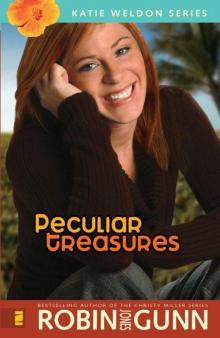 Peculiar Treasures
Peculiar Treasures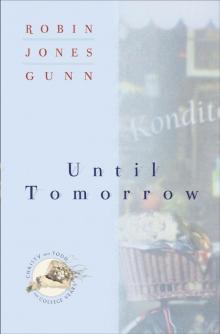 Until Tomorrow
Until Tomorrow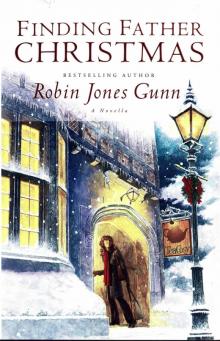 Finding Father Christmas
Finding Father Christmas Sisterchicks Down Under
Sisterchicks Down Under Christy Miller Collection, Vol 2
Christy Miller Collection, Vol 2 Sisterchicks Go Brit!
Sisterchicks Go Brit!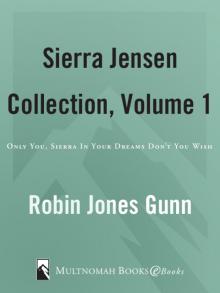 Sierra Jensen Collection, Vol 1
Sierra Jensen Collection, Vol 1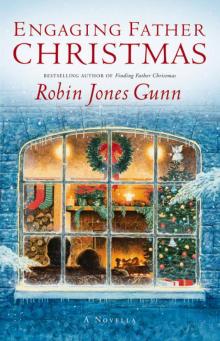 Engaging Father Christmas: A Novella
Engaging Father Christmas: A Novella Finally and Forever
Finally and Forever Wildflowers
Wildflowers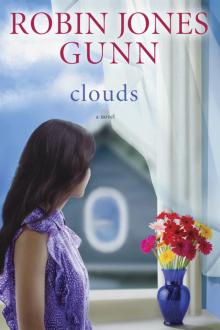 Clouds
Clouds Sierra Jensen Collection, Vol 3 Sierra Jensen Collection, Vol 3
Sierra Jensen Collection, Vol 3 Sierra Jensen Collection, Vol 3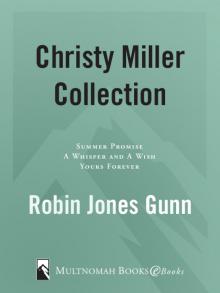 Christy Miller Collection, Vol 1
Christy Miller Collection, Vol 1 Sisterchicks Do the Hula
Sisterchicks Do the Hula Waterfalls
Waterfalls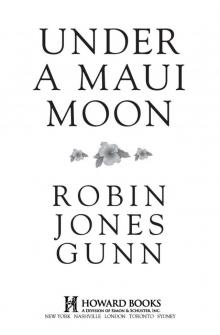 Under a Maui Moon
Under a Maui Moon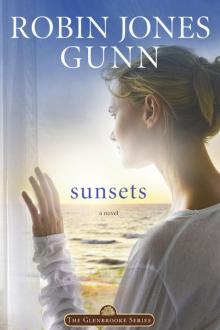 Sunsets
Sunsets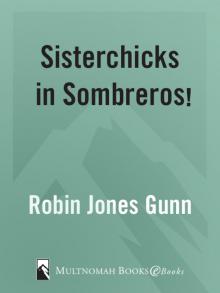 Sisterchicks in Sombreros
Sisterchicks in Sombreros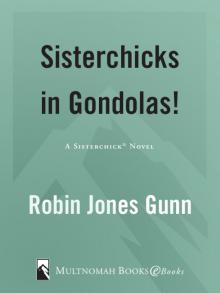 Sisterchicks in Gondolas!
Sisterchicks in Gondolas!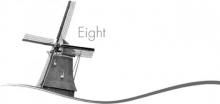 Sisterchicks in Wooden Shoes!
Sisterchicks in Wooden Shoes!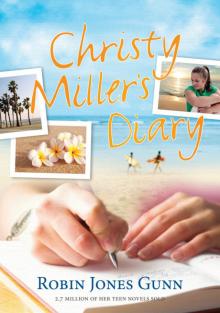 Christy Miller's Diary
Christy Miller's Diary Woodlands
Woodlands Only You, Sierra
Only You, Sierra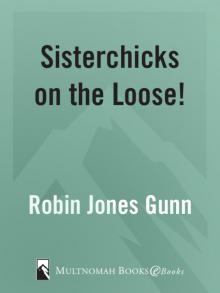 Sisterchicks on the Loose
Sisterchicks on the Loose Sierra Jensen Collection, Vol 2
Sierra Jensen Collection, Vol 2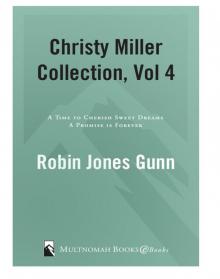 Christy Miller Collection, Vol 4
Christy Miller Collection, Vol 4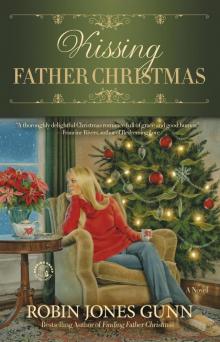 Kissing Father Christmas
Kissing Father Christmas Sierra Jensen Collection, Vol 4 Sierra Jensen Collection, Vol 4
Sierra Jensen Collection, Vol 4 Sierra Jensen Collection, Vol 4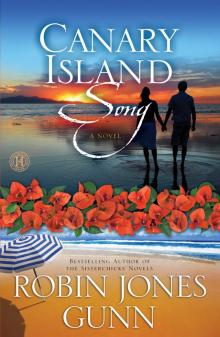 Canary Island Song
Canary Island Song Secrets
Secrets Cottage by the Sea
Cottage by the Sea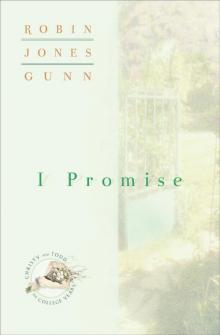 I Promise
I Promise Love Finds You in Sunset Beach, Hawaii
Love Finds You in Sunset Beach, Hawaii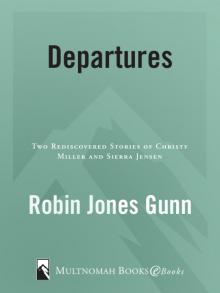 Departures: Two Rediscovered Stories of Christy Miller and Sierra Jensen
Departures: Two Rediscovered Stories of Christy Miller and Sierra Jensen Coming Attractions
Coming Attractions Sierra Jensen Collection, Volume 3
Sierra Jensen Collection, Volume 3 Sierra Jensen Collection, Volume 4
Sierra Jensen Collection, Volume 4 Christy Miller Collection, Volume 2
Christy Miller Collection, Volume 2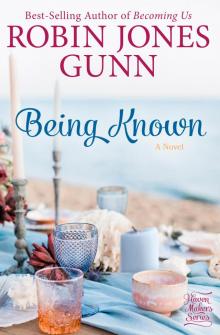 Being Known
Being Known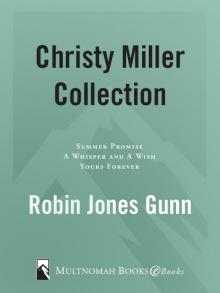 Christy Miller Collection, Volume 1
Christy Miller Collection, Volume 1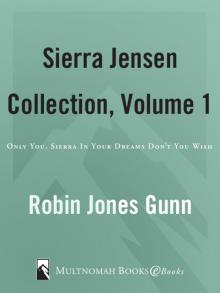 Sierra Jensen Collection, Volume 1
Sierra Jensen Collection, Volume 1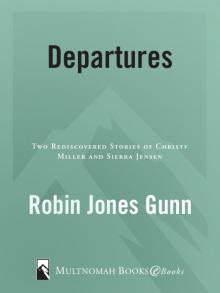 Departures
Departures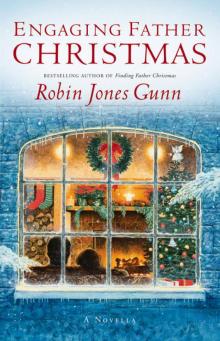 Engaging Father Christmas
Engaging Father Christmas Only You, Sierra: Book 1 in the Sierra Jensen Series (eBook)
Only You, Sierra: Book 1 in the Sierra Jensen Series (eBook)